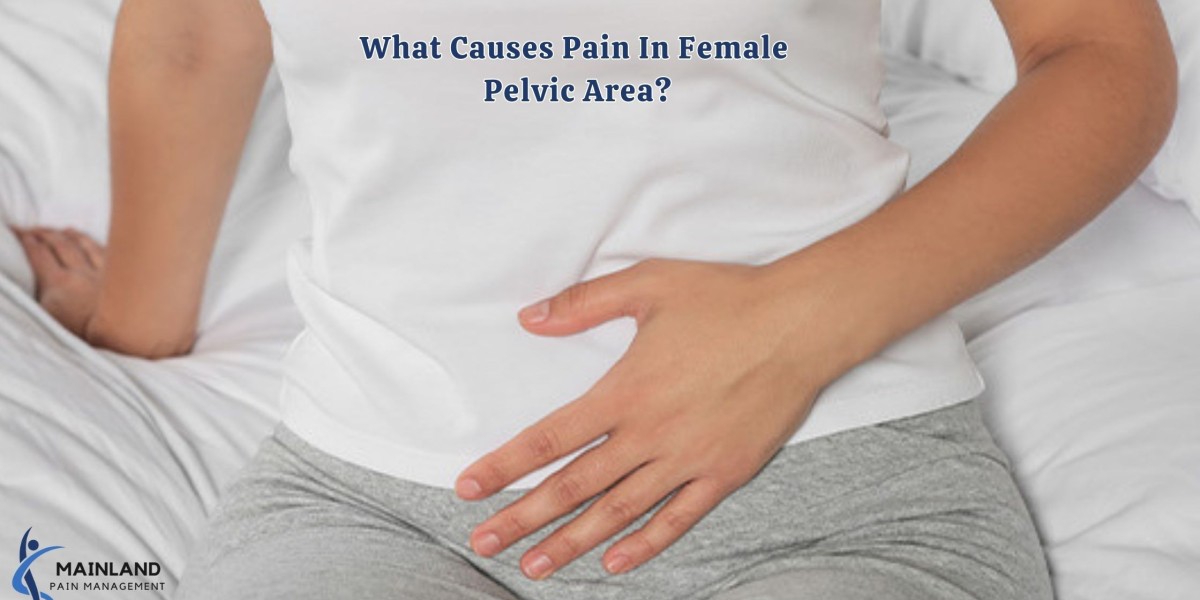Most of the females after reaching puberty complain about severe pelvic pain at different phases of life. The worrisome issue is that many fail to understand the cause behind this.
Through this blog, we will try to address some everyday things individuals should know about pelvic pain. Moreover, the cause of the discomforting situation of female pelvic pain is going to be addressed. Additionally, this blog also details the effective treatments for female pelvic pain treatment in New Jersey provided by medical experts.
What is Female Pelvic Pain?
Female pelvic pain refers to discomfort or pain that occurs in the lower part of a woman's abdomen or pelvis. This type of pain can vary in intensity, duration, and location, and it can have numerous potential causes.
Common Causes of Female Pelvic Pain
- Fibroids, trauma, pressure, or inflammation can cause nerve discomfort or inflammation.
- Contraction of skeletal muscles, fallopian tubes, uterine smooth muscles, and other smooth muscles.
- Difficulties with the female reproductive system, such as malignancies, endometriosis, endometrial polyps, miscarriages, ruptured fallopian tubes, ovarian cysts, and pelvic inflammatory disorders.
- The pelvis's internal organs are separated by scar tissue.
- Male pelvic pain conditions such as varicocele, hydrocele, prostatitis, and testicular torsion.
Cause of Chronic Female Pelvic Pain
- Endometriosis
- Adenomyosis
- Radiation treatment
- Cancers of pelvic organs
- Levator syndrome
- Pudendal neuralgia
- Pelvic support problems causing prolapse
- Irritable bowel syndrome
- Pelvic congestion syndrome
- Interstitial cystitis
- Sacroiliitis
Treatment for Female Pelvic Pain
- Medical Evaluation: The first step in treating pelvic pain is determining the cause. Your healthcare provider will take a detailed medical history, conduct a physical examination, and may order imaging or diagnostic tests like ultrasounds, CT scans, or MRI to identify any abnormalities.
- Medication: Depending on the diagnosis, your healthcare provider may prescribe medication to alleviate the pain. This can include non-steroidal anti-inflammatory drugs (NSAIDs) for inflammation, antibiotics for infections, hormonal therapy for conditions like endometriosis or fibroids, or pain relievers for general discomfort.
- Physical Therapy: Pelvic floor physical therapy is often recommended for women with musculoskeletal or pelvic floor dysfunction. Specially trained physical therapists can provide exercises and techniques to improve pelvic muscle function and reduce pain.
- Lifestyle Modifications: In some cases, lifestyle changes can help manage pelvic pain. These may include dietary adjustments for gastrointestinal issues, weight management, stress reduction techniques, and regular exercise to improve overall health.
- Minimally Invasive Procedures: If conservative treatments are ineffective, some conditions may require minimally invasive procedures or surgery. Laparoscopic surgery is commonly used to treat conditions like endometriosis, ovarian cysts, or fibroids.
- Psychological Support: Chronic pelvic pain can be emotionally challenging. Psychotherapy, counseling, or support groups may be beneficial for managing the emotional aspects of chronic pain.
- Alternative Therapies: Some individuals find relief from complementary therapies such as acupuncture, chiropractic care, or herbal remedies. It's essential to discuss these options with your healthcare provider before pursuing them.
- Pain Management Techniques: Techniques like nerve blocks or neuromodulation may be considered for severe and chronic pelvic pain cases.
It's crucial to remember that the success of treatment depends on an accurate diagnosis and a tailored approach to address the specific cause of pelvic pain. In case of finding effective chronic pain treatment in New Jersey, individuals may visit Mainland Pain Management. The facility is handled by a renowned pain management specialist, Dr. Dipty Mangla, who thoroughly analyzes the causes to provide the best-suited option.








